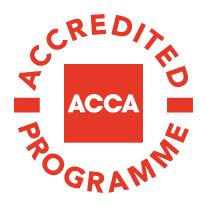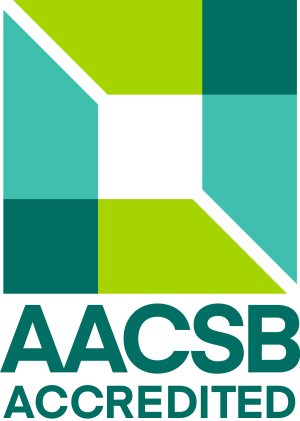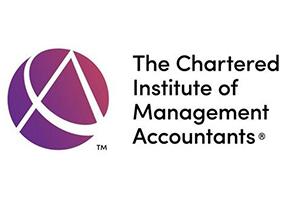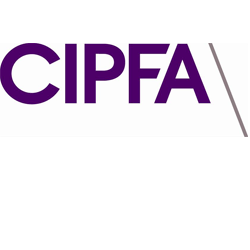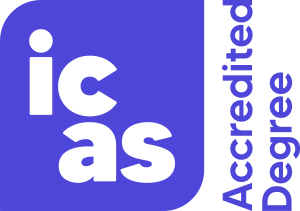
Key information
UCAS code:
N4N3
Accreditation:
This course is Accredited
Typical offer:
112-120 UCAS points from 3 A levels, or equivalent
Showing content for section Overview
Overview
Modern accountancy isn't all about number crunching and spreadsheets. As an accountant you need to be able to understand, visualise and present financial data to ensure businesses make the right decisions. You'll be at the heart of the business, analysing performance and informing strategy.
This degree focuses on modern accountancy skills as well as general business. You'll learn to inform and persuade using numbers. You'll work in small groups that replicate the workplace, with a focus on teamwork, real world case studies and developing strategy from financial data.
"All professional accountants will be expected to look beyond the numbers. They will need to collaborate with people...interpret and explain the numbers, provide insight...think and behave more strategically and become more involved in decision-making than before."
From your second year you'll be able to tailor your learning to your area of specialist interest, choosing your modules to focus on:
- professional modules: take the fastest route to becoming an ACCA chartered accountant
- finance modules: your best preparation route for working in banking or investment management
- analytics modules: combine accounting with data analysis, including data cleaning, visualisation and modelling
The course is accredited by 4 key accounting bodies (ACCA, CIMA, ICAEW and CIPFA), so whichever route you take you'll have lots of exemptions from professional exams.
Course highlights
- Be taught by professionally qualified accountants who have industry experience with companies such as KPMG, Deloitte and HSBC
- Get on the fast track to becoming a chartered accountant through our accredited exemptions from professional exams with 4 global accounting bodies
- Be employment-ready by using industry-standard software and databases such as Oracle, SAP, Sage and S&P Capital IQ
- Choose options in business analytics to develop the skills that modern accounting needs
- Benefit from the opportunity to gain additional certifications, for example the Microsoft Office Specialist (MOS) certification for Excel
- Gain a Bloomberg Certificate (a trading platform that's used by 250,000 financial service professionals) in our dedicated Bloomberg Suite
- Apply your learning by helping student entrepreneurs and local charities such as Age Concern and The Rowans Hospice with their finances
- Feel supported throughout your studies through our peer mentoring, maths support and our team of friendly staff who'll get to know you well
I have really enjoyed my time at Portsmouth and if I could turn back time I would come back and do it all again! What really stood out to me was the breadth of commercial and academic experience of the lecturers and their ability to bring the course to life using real world examples.
Accreditation
This course is accredited by the Chartered Institute of Management Accountants (CIMA), the Association of Chartered Certified Accountants (ACCA) the Institute of Chartered Accountants in England and Wales (ICAEW), the Institute of Chartered Accountants in Scotland (ICAS), and the Chartered Institute of Public Finance and Accountancy (CIPFA).
This means that in addition to achieving a degree, you receive exemptions from ACCA, CIMA, ICAEW and CIPFA professional examinations. This course offers the maximum number of exemptions for ACCA, CIMA and ICAS.
Why is this important?
To progress your career as an accountant you'll need to do further study after graduation whilst you're working. Combining study and work can be difficult, so it's good to complete as many required units as possible whilst you're still at university. This also benefits your future employers, as they'll have fewer professional examination fees to pay.
90%
graduates in work or further study 15 months after this course
(HESA Graduate Outcomes Survey 2018/19)
No. 3
influential business school in the world
Financial Times Teaching Power Rankings 2021
Contact information
Contact AdmissionsEntry requirements
BA (Hons) Accounting with Finance degree entry requirements
Typical offers
- A levels – BBB–BBC
- UCAS points – 112-120 points from 3 A levels, or equivalent (calculate your UCAS points)
- T-levels – Merit
- BTECs (Extended Diplomas) – DDM–DMM
- International Baccalaureate – 29
You may need to have studied specific subjects – find full entry requirements and other qualifications we accept.
English language requirements
- English language proficiency at a minimum of IELTS band 6.0 with no component score below 5.5.
See alternative English language qualifications.
We also accept other standard English tests and qualifications, as long as they meet the minimum requirements of your course.
If you don't meet the English language requirements yet, you can achieve the level you need by successfully completing a pre-sessional English programme before you start your course.
Typical offers
- A levels – BBB–BBC
- UCAS points – 112-120 points from 3 A levels, or equivalent (calculate your UCAS points)
- T-levels – Merit
- BTECs (Extended Diplomas) – DDM–DMM
- International Baccalaureate – 29
You may need to have studied specific subjects or GCSEs – find full entry requirements and other qualifications we accept.
English language requirements
- English language proficiency at a minimum of IELTS band 6.0 with no component score below 5.5.
See alternative English language qualifications.
We also accept other standard English tests and qualifications, as long as they meet the minimum requirements of your course.
If you don't meet the English language requirements yet, you can achieve the level you need by successfully completing a pre-sessional English programme before you start your course.
We look at more than just your grades
While we consider your grades when making an offer, we also carefully look at your circumstances and other factors to assess your potential. These include whether you live and work in the region and your personal and family circumstances which we assess using established data.
Ideal skills and qualities for this course
As well as meeting the entry requirements for this degree and being comfortable working with numbers, we're looking for people who are team players and who embrace a challenge.
Having a curious mind is important, because employers value graduates who can adapt to new situations and find solutions to complex problems.
Facilities and clinics

Accounting Clinic
Volunteer to help solve financial issues for fellow students who are setting up their own businesses.

Professional Accounting Practice
Help local charities with their financial and accounting issues through this practical module.

Business analytics software
Use industry standard business analytics software such as Microsoft BI, Python, and Tableau.
Bloomberg suite
Access data from the world's global financial markets and gain experience using industry standard software.

SAP Next Generation Lab
Gain practical skills with cloud-based software such as SAP and S&P Capital IQ, in our dedicated lab.
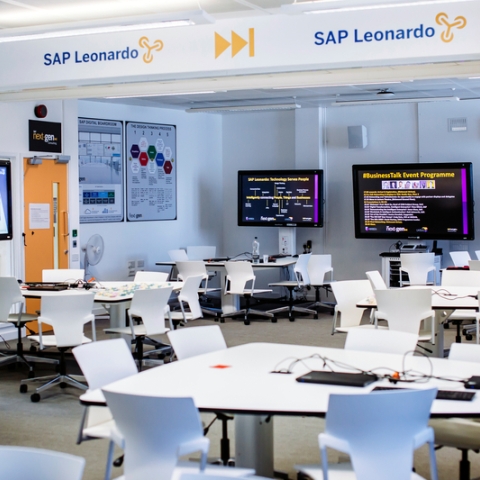
Maths cafe
No problem is too small or too tough for our Maths Café tutors, who are on hand every day during term-time to help you if you get stuck or need something explained.

Careers and opportunities
Accountants are needed in good times and bad and they're needed in every type of business. This means that you can apply your skills in any sector you're passionate about, from sports and entertainment, to manufacturing, charities, or the arts. You'll also be able to work in other parts of the world as your accredited qualification is recognised internationally.
Our graduates go on to work in accounting practice, the finance departments of large corporations, and the finance sector.
Previous graduates of this course have got jobs at companies such as:
- Deloitte
- PWC (PricewaterhouseCoopers)
- Menzies LLP
- HWB Accountants
- EY Global (Ernst & Young)
- JPP Financial
- Barclays
- Lockheed Martin UK
- Lloyds Register
- J P Morgan
- Grant Thornton
- Royal Bank of Scotland
Graduates of this course have secured jobs as:
- accountant
- auditor
- finance analyst
- financial consultant
- investment broker
- control analyst
- financial reporting analyst
- tax analyst
(Data taken from HESA Graduate Outcome surveys)
Meet Michael, BA (Hons) Accounting and Finance graduate and Finance Manager
Alumnus Michael Gray did a placement year at BMW before securing a graduate job at Deloitte. Michael shares how his experience and skills developed at university, and his journey to become a Finance Manager.
My name is Michael Gray and I work for Artifax Software Ltd, and I'm The finance manager there.
I've grown up in Croydon, which is in South London. I was the first to go to university in my family. I chose Portsmouth. That first day of driving into the car park and moving in was something I'll never forget. So what really sold me? Being a guy from London, you're not really used to seeing the sea. You can go for a run to de-stress. If you do want that city side of stuff, you've got that there also, absolutely perfect for me.
Getting a job in my placement year was definitely more difficult than getting a graduate job. A job popped up from BMW. To be honest, I couldn't have wished for a better placement year.
I think one of the main reasons I got the job was because of the really good support that I got from the university. From CV building to interview practice, it was really exceptional. You think you're going to excel, but you're not really that good at excel until you actually are thrown in the fire.
I think the thing I'm most proud of in my journey so far is getting the call from Deloitte saying that I was lucky enough to be recruited.
That was an amazing thing. Imagine, one of the big four that you learnt throughout your studies that these are the sort of companies you want to aspire to and be recruited by, and getting that phone call was something I could have never imagined.
So, the future for me is that within the next five years, I'll be CFO of the group of companies.
That's the aim. If I didn't go to the University of Portsmouth, I probably would be wondering what I want to do next probably, but because I had that support network of great tutors, I knew exactly what I wanted to do, that was invaluable.

Mentoring programme - Pathways into accounting
Take part in virtual meetings with alumni mentors who are working in industry.
Hear about their journeys, successes and challenges as you prepare for the transition from student to working professional.

Ongoing career support – up to 5 years after you graduate
Get experience while you study, with support to find part-time jobs, volunteering opportunities, and work experience.
Towards the end of your degree and for up to five years after graduation, you’ll receive one-to-one support from our Graduate Recruitment Consultancy to help you find your perfect role.
If you decide at the end of your studies that you don't want to qualify as an accountant there are many other options open to you. The data analysis skills and problem-solving skills you'll develop on this course will open many other doors.
You could also choose to continue your studies at postgraduate level, or set up your own business with help and support from the University.

The degree really builds you as a young professional and makes you ‘well-rounded’ and employable; top employers want more than just a good degree classification nowadays. At Portsmouth, they have a clear intent on making you a great candidate to potential employers.
Work placement year
You can boost your employability by taking an optional paid placement year between years 2 and 3 of your degree, or after year 3.
Previous students have had placements in organisations such as:
- Deloitte
- PwC (PricewaterhouseCoopers)
- NBC Universal
- Siemens
- Decathlon
- Metropolitan Police Service
Many of our students are offered graduate jobs by their placement employers.

My role as a Finance Intern at ISS UK Head Office involved providing support in key areas. What I enjoyed most about this was being a part of high level finance team. I would recommend doing a placement as it gives you a good idea of what it is like to work in a professional function and what skills you will need to acquire in order to develop and succeed in the future.
The average salary for a 12-month paid placement is £19,800 for students in the Faculty of Business and Law. It could be more or less than this amount depending on your placement. You'll only pay a very small percentage of your tuition fee for this year.
You could also set up your own business, or take a voluntary placement.

Read blogI worked with different systems such as Blackline, Auditboard and Workiva doing different types of Audits across many countries for financial close, Leases, Inventory and Revenue controls.
Ways to enrich your study
Study abroad year
In your second year you can choose to study abroad at one of our partner universities in Europe, Asia, Australia or North America. All classes are delivered in English and you'll still be able to get both your tuition fee and maintenance loans. You may also qualify for a government travel grant.

Students that go abroad are more likely to obtain first-class honours [and] more likely to be in graduate employment than their non-mobile peers.
Modules
Each module on this course is worth a certain number of credits.
In each year, you need to study modules worth a total of 120 credits. For example, four modules worth 20 credits and one module worth 40 credits.
What you'll study
Core modules
By tackling problems and evaluating real-world scenarios, you’ll apply theories to issues like trade and employment — discovering how economics shapes decisions globally and nationally.
With a rounded understanding, you’ll finish this module ready to explain the factors driving growth, business cycles and living standards.
This module is accredited by professional accounting bodies and contributes towards exemptions from professional accounting examinations (subject to meeting any additional threshold requirements of the professional accounting bodies).
Discover topics including data mining, statistical modelling, data cleaning and decision-focused visualisations. This foundational module develops the skills you need to draw and communicate insights from data.
When you finish this module you’ll be fully equipped to identify and use data patterns to drive results.
The module is delivered by 2 hour workshops.
Core modules
But what if practice deviates from theory or if there are competing theories for the same practice? This module introduces you to live debates and controversies across accounting and financial management. These may be controversies about academic debates with a bearing on practice or current issues in the world of business, including ethical, governance and sustainability issues. Most topics will be addressed with reference to relevant theory but empirical analysis will also play an important role. You will see how to approach questions in a systematic way and, where relevant, apply appropriate empirical analysis to evaluate the arguments relating to those questions. By ¿empirical¿, we can refer to either quantitative (numerical) or qualitative (e.g. text) data analysis.
The following transferable skills are continually developed across the module:
Communication, Team Work, Leadership, Critical Thinking, Digital Skills, Problem-Solving and Creativity.
The module is assessed by two individual coursework items, involving a portfolio of work and an oral group presentation. The module will mainly be delivered through two 2-hour weekly workshops in the Technology Enhanced Active Learning room. Towards the latter stages of the course, the teaching delivery will change to a 1 hour online plenary and a 1 hour online drop-in session each week, supported by a 2-hour weekly workshop in the IT Labs. The emphasis of these workshops will be on student centred learning activities and problem-solving case studies.
Gain insight into UK regulations around corporate reporting by analysing concepts and applying them to real-world situations. Develop your skills in evaluating and interpreting financial statements, and learn to identify limitations of the information.
Reflect on pressing issues around governance, sustainability, ethics and internal controls as you refine your problem-solving, research and communication abilities. You'll study with case studies, plenaries and student-led activities, and finish this module fully prepared to appraise financial reports.
This accredited module contributes towards professional accounting exams — boosting your employability as you study.
Master concepts from budgeting to pricing, and prepare to select and use accounting techniques to reduce costs, boost profitability, and improve performance.
By tackling problems through case studies, you’ll evaluate options to plan operations or launch new products and services.
You'll finish this module ready to shape the future direction of organisations and advise managers.
You'll learn how managers support investment decisions, planning, risk management and more as you explore topics like project appraisals, budgeting, working capital optimisation and sourcing funding in workshops, all while tackling real-world cases.
With assessments and activities that focus on applying concepts to business scenarios, you’ll build your analytical skills to evaluate options and provide strategic recommendations.
When you finish this module, you’ll have the foundations to advance into corporate finance as well as the practical toolkit to immediately improve an organisation’s financial health and pursuit of goals.
Optional modules
This module will address the following Hallmarks of a University of Portsmouth graduate through learning and assessment:
- Have a critical and reflective knowledge and understanding of their subject, with both the ability and readiness to question its principles, practices and boundaries.
This module mirrors Financial Management delivered at the University of Portsmouth but is contextualised for Singapore law and GAAP.
Core modules
Optional modules
This module provides a platform for students to explore a specific area of interest in depth and contribute to the existing body of knowledge in the field of accounting and finance.
The module is designed to enhance a variety of skills that are essential in a modern working environment, including the ability to communicate complex subject specific information, obtaining and analysing data, and making inferences that help decision-making.
Throughout the module¿s lectures and supervision, students will be guided through the research process, starting with the formulation of a clear and concise research question or hypothesis. They will receive guidance on conducting a comprehensive literature review, which involves critically analysing relevant scholarly works and identifying gaps in the existing literature, and will have the opportunity to attend workshops covering the methodologies and research techniques applicable to this field, supplementing their learning from stage 4 and 5 of their programme.
Furthermore, the module should encourage students to develop effective academic writing and presentation skills. This includes structuring their dissertation, adhering to citation and referencing guidelines, and effectively communicating their research findings. Extensive materials for self-study support this element of the module, which contributes towards the achievement of all Learning Outcomes. Students will be assigned a supervisor based upon their chosen topic. Supervision meetings shall support students in meeting all module Learning Outcomes in the course of completing the assessment schedule.
Overall, the undergraduate dissertation module should foster critical thinking, independent research, and academic excellence, preparing students for further academic pursuits or professional careers that require advanced research skills. It should provide a supportive environment where students receive mentorship and guidance from experienced faculty members, enabling them to produce a high-quality and original piece of research.
ETHICAL APPROVAL: Ethical approval MUST be gained BEFORE any primary research is undertaken. The completed Faculty Ethical Approval Form, signed by the supervisor, must be submitted and any dissertation submitted without a signed-off ethics form will be marked as a fail.
Hallmarks: critical and reflective knowledge and understanding of aspects of accounting and audit as related to charities; work in a range of environments and respond positively in new situations by being aware, flexible, adaptable and realistic in their expectations; able to communicate with different audiences eg non-financial client management.
Assessment: portfolio for small group project, an individual academic report, and an individual reflection.
The module takes an applied approach, focussing on contemporary issues within the sports industry through the lens of economics, finance and governance. Topics covered include: Competitive balance in sporting contests, demand for live events, cross subsidisation between leagues, match outcome forecasting, financial sustainability, return on investment, streams of income, corruption, and governance.
Optional work placement year
Successful completion of the placement will be recognised in the transcript of achievement and the degree certificate will state `in the sandwich mode'.
Changes to course content
We use the best and most current research and professional practice alongside feedback from our students to make sure course content is relevant to your future career or further studies.
Therefore, some course content may change over time to reflect changes in the discipline or industry. If a module doesn't run, we'll let you know as soon as possible and help you choose an alternative module.
Alternative accounting courses
Not quite sure this course is right for you? Take a look at our other accounting courses to compare your options.
If you'd like to combine your studies of finance with a broader understanding of business, looking at how finance works with other business sectors such as operations and people management, this BA Financial Management degree may be for you.
If you've done some of an accounting degree at another institution and you're interested in a career in accountancy this ACCA and CIMA accredited top-up BA Accountancy and Financial Management is a good choice. Although designed primarily for international students this top-up doesn't include any English language or communication modules.
What sticks out about my course is that there are so many elements incorporated to help us learn from different perspectives. You will learn economical, psychological, business, mathematical and technical abilities that will give you more confidence to enter any industry as it all links to one another.
Teaching
Our teaching has been developed to maximise skills that employers are looking for. In our classes you'll engage in activities that both enhance your learning and develop your communication, presentation and team working skills. Where appropriate, you'll use computer packages that are valued within the accounting and finance professions.
The majority of your timetabled teaching will be face-to-face and will include:
- seminars
- practical workshops
- computer workshops
- group work
- 1-to-1 tutorials
- guest speakers from the profession and industry
We pride ourselves on the academic support we offer our students. In addition to our dedicated teaching team, you'll have a personal tutor, student engagement officers and study support staff to help you throughout your studies.
Assessment
We use a diverse range of assessments and we focus on the types of work you'll be expected to complete in the workplace.
As with all accounting courses, accreditation requirements mean that you will be assessed by a number of exams, but your assessment will depend on which modules you take.
Assessment methods are likely to include:
- analysis of topical case studies
- written reports
- presentations
- self-led project or dissertation
- group work
- portfolio creation
- essays
- exams
Teaching staff profiles
These are some of the expert staff who'll teach you on this course.
How you'll spend your time
One of the main differences between school or college and university is how much control you have over your learning.
We use a blended learning approach to teaching, which means you’ll take part in both face-to-face and online activities during your studies. As well as attending your timetabled classes you'll study independently in your free time, supported by staff and our virtual learning environment, Moodle.
A typical week
We recommend you spend at least 35 hours a week studying for this degree.
Your total study time will depend on the modules that you take, but in your first year this is what your week may look like:
- timetabled teaching activities (lectures, seminars, tutorials, classes and workshops) = about 15 hours a week
- independent study (research, reading, coursework and project work, alone or in a group) = about 20 hours a week
You'll probably do more independent study and have less scheduled teaching in years 2 and 3, but this depends on which modules you choose.
Term dates
The academic year runs from September to June. There are breaks at Christmas and Easter.
Supporting you
The amount of timetabled teaching you'll get on your degree might be less than what you're used to at school or college, but you'll also get support via video, phone and face-to-face from teaching and support staff to enhance your learning experience and help you succeed. You can build your personalised network of support from the following people and services:
Types of support
Your personal tutor helps you make the transition to independent study and gives you academic and personal support throughout your time at university.
As well as regular scheduled meetings with your personal tutor, they're also available at set times during the week if you want to chat with them about anything that can't wait until your next meeting.
In addition to the support you get from your personal tutor, you'll also have access to our student engagement officers. They can give you confidential, impartial advice on anything to do with your studies and personal wellbeing, and refer you to specialist support services if you need extra help or support.
The Maths Cafe offers free advice and help with maths skills in a friendly, informal environment. You can come to our daily drop-in sessions, develop your maths skills at a workshop, or use our online resources.
You'll have help from a team of study support tutors. Based within the Faculty of Business and Law, these tutors are familiar with the specific requirements your assignments and work closely with faculty academics. This means they can give you focused support with the specific study skills you need to be successful on your course. They're available face-to-face, by phone, email, and by video call.
They can help with:
- academic writing (for example, essays, reports, dissertations, projects and literature reviews)
- reflective writing skills
- critical thinking skills
- delivering presentations (including observing and filming presentations)
- understanding and using assignment feedback
- managing your time and workload
- revision and exam techniques
If you're a mature student, specialist support to help you return to learning is available.
As well as support from faculty staff and your personal tutor, you can use the University's Academic Skills Unit (ASK).
ASK provides one-to-one support in areas such as:
- academic writing
- note taking
- time management
- critical thinking
- presentation skills
- referencing
- working in groups
- revision, memory and exam techniques
Library staff are available in person or by email, phone, or online chat to help you make the most of the University’s library resources. You can also request one-to-one appointments and get support from a librarian who specialises in your subject area.
The library is open 24 hours a day, every day, in term time.
Our online Learning Well mini-course will help you plan for managing the challenges of learning and student life, so you can fulfil your potential and have a great student experience.
You can get personal, emotional and mental health support from our Student Wellbeing Service, in person and online. This includes 1–2–1 support as well as courses and workshops that help you better manage stress, anxiety or depression.
If you require extra support because of a disability or additional learning need our specialist team can help you.
They'll help you to
- discuss and agree on reasonable adjustments
- liaise with other University services and facilities, such as the library
- access specialist study skills and strategies tutors, and assistive technology tutors, on a 1-to-1 basis or in groups
- liaise with external services
If English isn't your first language, you can do one of our English language courses to improve your written and spoken English language skills before starting your degree. Once you're here, you can take part in our free In-Sessional English (ISE) programme to improve your English further.
Meet Jesse
Hear from Nigerian graduate Jesse Targema-Takema about his journey to Portsmouth, his experience studying, and life now as an Investment Banking Analyst in London. Find out how the University supported him throughout his degree.
[Jesse Targema-Takema - BA (Hons) Accounting with Finance, 2020]
Jesse: I was just very interested in business in general. And as they say, accounting is the language of business, so I thought marry my love for business with accounting.
So I've got two older sisters that actually graduated from Portsmouth. It was definitely very different to to living in Nigeria so It was quite nice to have them here because it was nice to settle in a lot quicker than I would have if I didn't have them here. They really spoke about the great community here at Portsmouth.
I personally thought the lecturers were very good. I thought they were very supportive, really looked out for your best interests. They had a lot of industry experience and so they were able to bring it that into the classroom. In a lot of ways it guided my decision in terms of what sort of career and what sorts of things I wanted to do. So I thought that was fantastic.
It was actually my third year when I started to panic about next steps because I came here as an international student. So it was a case of "Do I go back to Nigeria to work? Do I stay in England to work?" I applied for a few jobs and the support provided by the University was invaluable. The career service, I thought they were absolutely brilliant and so I was able to secure a job at Lloyds Banking Group. I did that for two years, and as I got to learn more about what I wanted to do long term, I thought investment banking was something best suited me well in terms of my personality and the technical skill set. So I currently working in investment banking in London.
I would say the best thing about Portsmouth is the opportunities. The opportunities provided by the University to go on a placement year and the support they provided for that. To bringing people to talk about their careers and you get the opportunity to learn from them. Honestly the parties were great as well at Portsmouth. So the opportunity to go out to the pub and to the bars, which is also fantastic as well.
When when you build relationships at university, they're relationships that last a lifetime. Overarchingly, I think the biggest thing to come out of Portsmouth for me is the relationships I built and just having friends I know I can rely on, I can lean on and we can always have a good time together. So inevitably this had a massive, massive impact on me.
Course costs and funding
Tuition fees
- UK/Channel Islands and Isle of Man students – £9,250 per year (may be subject to annual increase)
- EU residents – £9,250 a year (including Transition Scholarship – may be subject to annual increase)
- International students – £17,200 per year (subject to annual increase)
- UK/Channel Islands and Isle of Man students – £9,250 per year (may be subject to annual increase)
- EU residents – £9,250 a year (including Transition Scholarship – may be subject to annual increase)
- International students – £17,200 per year (subject to annual increase)
Funding your studies
Find out how to fund your studies, including the scholarships and bursaries you could get. You can also find more about tuition fees and living costs, including what your tuition fees cover.
Applying from outside the UK? Find out about funding options for international students.
Additional course costs
These course-related costs aren’t included in the tuition fees. So you’ll need to budget for them when you plan your spending.
Additional costs
Our accommodation section show your accommodation options and highlight how much it costs to live in Portsmouth.
You’ll study up to 6 modules a year. You may have to read several recommended books or textbooks for each module.
You can borrow most of these from the Library. If you buy these, they may cost up to £60 each.
We recommend that you budget £75 a year for photocopying, memory sticks, DVDs and CDs, printing charges, binding and specialist printing.
If your final year includes a major project, there could be cost for transport or accommodation related to your research activities. The amount will depend on the project you choose.
If you take a placement year or study abroad year, tuition fees for that year are as follows:
- UK/Channel Islands and Isle of Man students – £1,385 a year (may be subject to annual increase)
- EU students – £1,385 a year, including Transition Scholarship (may be subject to annual increase)
- International students – £2,875 a year (subject to annual increase)
Apply
How to apply
To start this course in 2024, apply through UCAS. You'll need:
- the UCAS course code – N4N3
- our institution code – P80
If you'd prefer to apply directly, use our online application form.
You can also sign up to an Open Day to:
- Tour our campus, facilities and halls of residence
- Speak with lecturers and chat with our students
- Get information about where to live, how to fund your studies and which clubs and societies to join
If you're new to the application process, read our guide on applying for an undergraduate course.
To start this course in 2025, apply through UCAS. You'll need:
- the UCAS course code – N4N3
- our institution code – P80
If you'd prefer to apply directly, use our online application form.
You can also sign up to an Open Day to:
- Tour our campus, facilities and halls of residence
- Speak with lecturers and chat with our students
- Get information about where to live, how to fund your studies and which clubs and societies to join
If you're new to the application process, read our guide on applying for an undergraduate course.
Applying from outside the UK
As an international student you'll apply using the same process as UK students, but you’ll need to consider a few extra things.
You can get an agent to help with your application. Check your country page for details of agents in your region.
Find out what additional information you need in our international students section.
If you don't meet the English language requirements for this course yet, you can achieve the level you need by successfully completing a pre-sessional English programme before you start your course.
Admissions terms and conditions
When you accept an offer to study at the University of Portsmouth, you also agree to abide by our Student Contract (which includes the University's relevant policies, rules and regulations). You should read and consider these before you apply.


